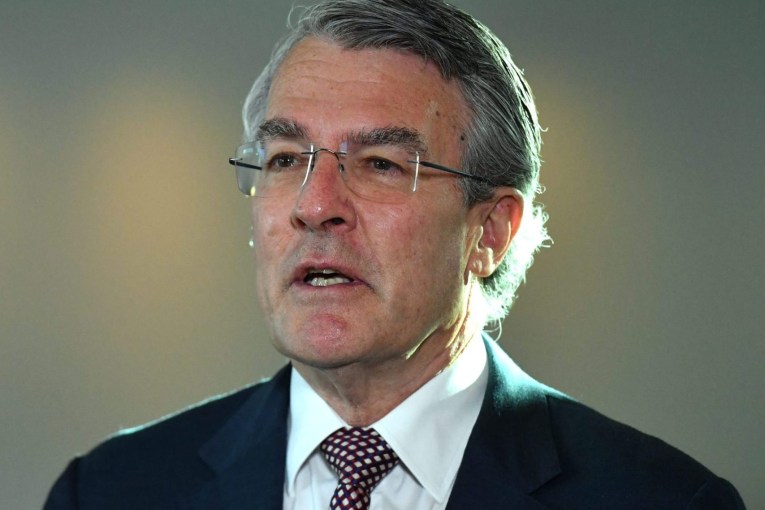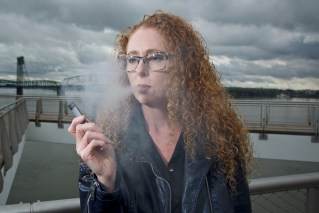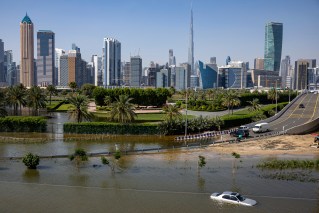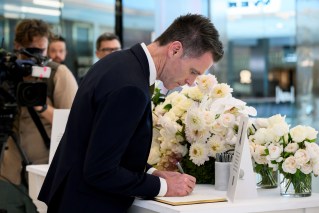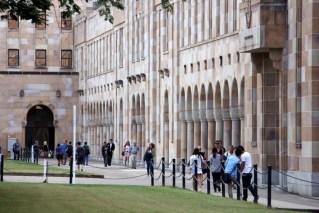A lifetime ago, bomb survivors remember Hiroshima horror
Survivors of the world’s first atomic bombing have gathered in diminished numbers near a blasted dome to mark 75 years since the attack, many of them urging the world and their own government to do more to ban nuclear weapons.
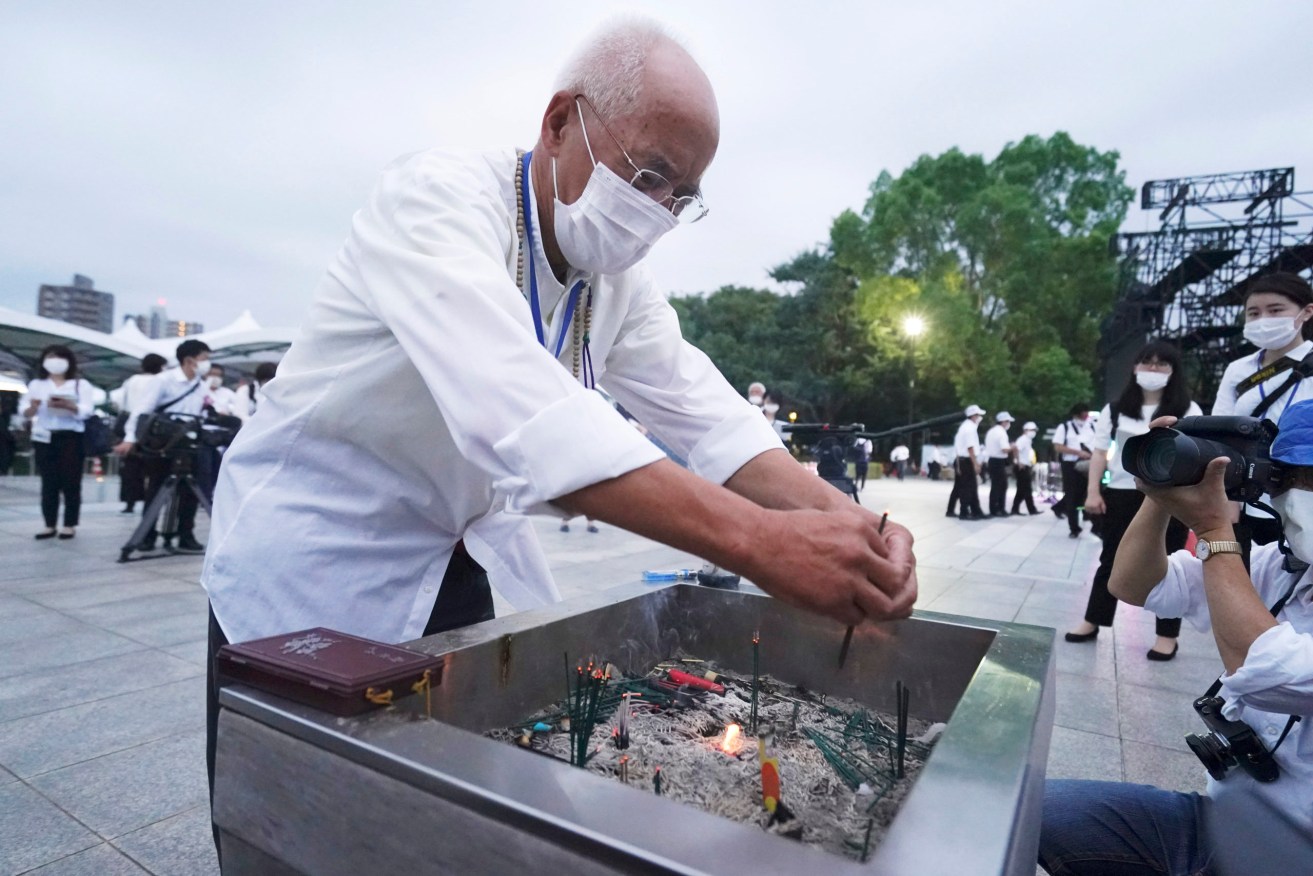
A visitor burns joss sticks in front of the cenotaph for the atomic bombing victims before the start of a ceremony to mark the 75th anniversary of the U.S. bombing in Hiroshima. (AP Photo/Eugene Hoshiko)
An upsurge of coronavirus cases in Japan meant a much smaller than normal turnout, but the bombing survivors’ message was more urgent than ever.
As their numbers dwindle – their average age is about 83 – many nations have bolstered or maintained their nuclear arsenals, and their own government refuses to sign a nuclear weapons ban treaty.
Amid cries of Japanese government hypocrisy, survivors, their relatives and officials marked the 8.15am blast anniversary on Thursday with a minute of silence.
The United States dropped the world’s first atomic bomb on Hiroshima on August 6, 1945, destroying the city and killing 140,000 people.
It dropped a second bomb three days later on Nagasaki, killing another 70,000.
Japan surrendered on August 15, ending World War II and its nearly half-century of aggression in Asia.
But the decades since have seen the weapons stockpiling of the Cold War and a nuclear stand-off among nations that continues to this day.
Amid the solemn remembrances at Hiroshima’s peace park, Prime Minister Shinzo Abe was confronted by six members of survivors’ groups over the treaty.
“Could you please respond to our request to sign the Nuclear Weapons Prohibition Treaty?” Tomoyuki Mimaki, a member of a major survivors’ group, Hidankyo, implored Abe.
“The milestone 75th anniversary of the atomic bombing is a chance” to change course.
Abe insisted on Japan’s policy not to sign the treaty, vaguely citing a “different approach,” though he added that the government shares the goal of eliminating nuclear weapons.
Even though Tokyo renounces its own possession, production or hosting of nuclear weapons, Japan is a top US ally, hosts 50,000 American troops and is protected by the US nuclear umbrella.
This complicates the push to get Tokyo to sign the treaty adopted in 2017, especially as it steps up its military role amid North Korea’s continuing pursuit of a stronger nuclear program.
Abe, in his speech at the ceremony, said a nuclear-free world cannot be achieved overnight.
“Japan’s position is to serve as a bridge between different sides and patiently promote their dialogue and actions to achieve a world without nuclear weapons,” Abe said.
Earlier, Hiroshima Mayor Kazumi Matsui urged world leaders to more seriously commit to nuclear disarmament, pointing out Japan’s failures.
“As the only nation to suffer a nuclear attack, Japan must persuade the global public to unite with the spirit of Hiroshima.”
“The only way to totally eliminate nuclear risk is to totally eliminate nuclear weapons,” UN Secretary General Antonio Guterres said in a video message from New York.
“Today, a world without nuclear weapons seems to be slipping further from our grasp.”
Pope Francis also sent a message, recalling that he had prayed at the Hiroshima peace memorial during his 2019 visit to Japan and met with bombing survivors.
He repeated what he said then: “The use of atomic energy for purposes of war is immoral, just as the possessing of nuclear weapons is immoral.”
The Holy See was among the first countries to sign and ratify the UN nuclear prohibition treaty.
-AAP
